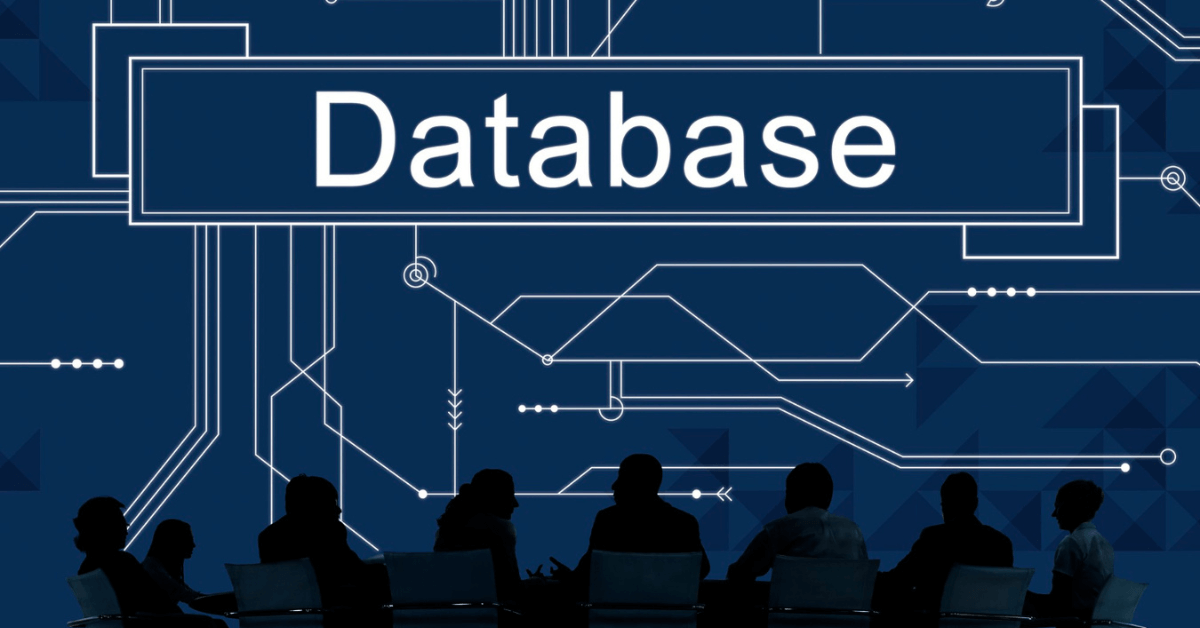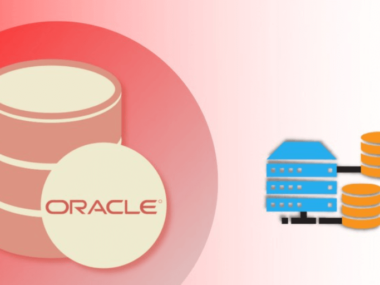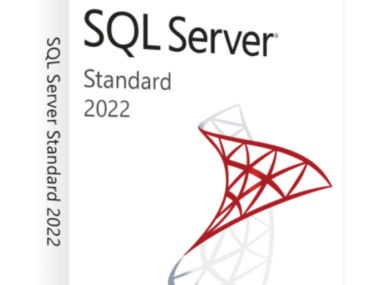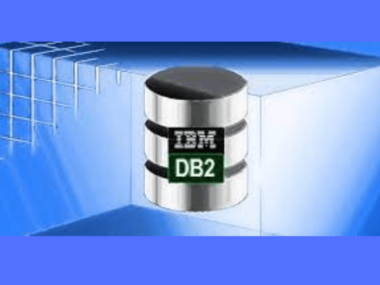As a data analyst, I understand the importance of choosing the right database for a business. With so many options available, it can be overwhelming to determine which one is the best fit.
Also Read
That’s why I’ve compiled a list of the top 10 databases of the business world, based on their popularity, functionality, and reliability.

At the top of the list is Oracle, a mature and stable database that is widely used by major Fortune 500 companies for their transactions. PostgreSQL is another popular choice, known for its flexibility and scalability.
MySQL and Microsoft SQL Server also make the list, with their user-friendly interfaces and strong support systems. If you need any good software. Click here.
Whether you’re running an eCommerce business or managing financial data, a reliable database is crucial for success. By choosing one of the top 10 databases of the business world, you can ensure that your data is secure, organized, and easily accessible.
Understanding Databases
As a data scientist, I have come across many databases in my line of work. In this section, I will explain what databases are and their importance in the business world.
What Are Databases?
A database is an organized collection of data that is stored and accessed electronically. It is a crucial tool used by organizations to store, retrieve, and manage information efficiently.
Databases can contain any type of data, including words, numbers, images, videos, and files. They are managed by software called a database management system (DBMS) that allows users to store, retrieve, and edit data.
There are several types of databases that are used for different purposes. The most common type of database used today is a relational database. It stores data in tables that are related to each other through keys.
Other types of databases include NoSQL databases, object-oriented databases, and hierarchical databases. If you need any good software. Click here.
The importance of Databases in Business
Databases are the backbone of the digital world, supporting efficient data operations. Almost every program used by businesses relies on a database to store data, such as usernames and passwords.
Databases are essential for businesses to make data-driven decisions, as they provide a centralized location for storing and managing data.
Databases help businesses in many ways, such as:
- Efficient data management: Databases allow businesses to organize and manage large amounts of data efficiently. This helps businesses to make better decisions, as they have access to accurate and up-to-date information.
- Improved customer service: Databases allow businesses to store customer information, such as contact details and purchase history. This information can be used to provide better customer service, as businesses can personalize their interactions with customers.
- Increased productivity: Databases allow businesses to automate many tasks, such as data entry and report generation. This saves time and increases productivity, as employees can focus on more important tasks.
In conclusion, databases are a crucial tool for businesses to manage and store data efficiently. They allow businesses to make data-driven decisions, provide better customer service, and increase productivity. If you need any good software. Click here.
Top 10 Business Databases
When it comes to managing business data, having the right database can make all the difference. Here are the top 10 databases used in the business world:
Oracle Database
Oracle is one of the most popular databases in the world, used by many large enterprises. It’s known for its scalability, reliability, and security features. Oracle Database also offers a wide range of tools and applications for managing data.
Microsoft SQL Server Database
Microsoft SQL Server is another popular database used in the business world. It’s known for its ease of use, scalability, and robust security features.
Microsoft SQL Server also integrates well with other Microsoft products, making it a popular choice for businesses that use Microsoft software.
IBM DB2 Database
IBM DB2 is a powerful database used by many large enterprises. It’s known for its scalability, reliability, and security features. IBM DB2 also offers a wide range of tools and applications for managing data.
SAP Sybase ASE Database
SAP Sybase ASE is a high-performance database used by many large enterprises. It’s known for its scalability, reliability, and security features. SAP Sybase ASE also offers a wide range of tools and applications for managing data.
Teradata Database
Teradata is a popular database used in the business world, particularly in the finance and retail industries. It’s known for its scalability, reliability, and high-performance features. Teradata also offers a wide range of tools and applications for managing data.
MySQL Database
MySQL is a popular open-source database used in the business world. It’s known for its ease of use, scalability, and reliability. MySQL is also highly customizable, making it a popular choice for businesses that need a database that can be tailored to their specific needs.
Amazon RDS Database
Amazon RDS is a cloud-based database service offered by Amazon Web Services. It’s known for its scalability, reliability, and security features. Amazon RDS also offers a wide range of tools and applications for managing data.
Google Cloud SQL Database
Google Cloud SQL is a cloud-based database service offered by Google Cloud Platform. It’s known for its scalability, reliability, and security features. Google Cloud SQL also offers a wide range of tools and applications for managing data.
MongoDB Database
MongoDB is a popular NoSQL database used in the business world. It’s known for its scalability, flexibility, and ease of use. MongoDB is particularly well-suited for managing unstructured data.
PostgreSQL Database
PostgreSQL is a popular open-source database used in the business world. It’s known for its scalability, reliability, and security features.
PostgreSQL is also highly customizable, making it a popular choice for businesses that need a database that can be tailored to their specific needs. If you need any good software. Click here.
These are the top 10 databases used in the business world. Depending on your business needs, one of these databases may be the right choice for you.
Choosing the Right Database

As a business owner, choosing the right database for your company is a crucial decision that can impact your operations and bottom line.
With so many options available, it can be overwhelming to determine which database is the best fit for your needs. Here are some factors to consider:
Factors to Consider
Data Type
The type of data your business generates and stores is an important factor in choosing the right database. For example, if your business deals with a lot of unstructured data, a NoSQL database may be a better fit than a traditional relational database.
On the other hand, if your business deals mainly with structured data, a relational database may be a better choice.
Scalability
Scalability is another important factor to consider. If your business is growing rapidly, you need a database that can handle increasing amounts of data and traffic. Cloud-based databases are often a good choice for businesses that need to scale quickly.
Security
Data security is a top concern for businesses of all sizes. When choosing a database, consider the security features it offers, such as encryption and access controls.
Make sure the database you choose meets any regulatory requirements for your industry.
Cost and Budget
The cost of a database can vary widely depending on the type of database and the features it offers. When choosing a database, consider your budget and the total cost of ownership, including licensing fees, hardware costs, and maintenance costs.
Cloud-based databases can be a cost-effective option for businesses that don’t want to invest in expensive hardware. If you need any good software. Click here.
In conclusion, choosing the right database for your business requires careful consideration of your data type, scalability needs, security requirements, and budget.
By taking the time to evaluate your options and choose the best fit for your needs, you can ensure your business runs smoothly and efficiently.
Database Security

As a database administrator, I understand the importance of securing business databases. A data breach can cause significant damage to a company’s reputation and finances.
Therefore, it is essential to ensure that databases are secure from unauthorized access. In this section, I will discuss the importance of database security and best practices to follow.
Importance of Security
Database security is critical for businesses because it protects sensitive data from unauthorized access, modification, or deletion.
Confidential information such as customer data, financial records, and intellectual property must be kept secure. Failure to protect this information can lead to legal and financial consequences.
Moreover, database security is essential for compliance with regulations such as HIPAA, PCI DSS, and GDPR. These regulations require businesses to protect sensitive data and implement security measures to prevent data breaches.
Best Practices
Implementing database security best practices can help businesses protect their databases from threats. Here are some best practices to follow:
- Access Control: Restrict access to databases to authorized personnel only. Use strong passwords and two-factor authentication to ensure that only authorized users can access the database.
- Encryption: Encrypt sensitive data in transit and at rest to prevent unauthorized access. Use strong encryption algorithms to protect data from hackers.
- Patch Management: Keep databases up-to-date with the latest security patches and updates to prevent vulnerabilities that can be exploited by hackers.
- Auditing and Monitoring: Monitor database activity and audit logs to detect and prevent unauthorized access. Set up alerts to notify administrators of suspicious activity.
- Backup and Recovery: Regularly backup databases and test recovery procedures to ensure that data can be recovered in case of a disaster.
In conclusion, database security is crucial for businesses to protect sensitive data from unauthorized access. Implementing best practices such as access control, encryption, patch management, auditing and monitoring, and backup and recovery can help businesses secure their databases from threats. If you need any good software. Click here.
Future of Business Databases
As businesses continue to generate and collect more data, the demand for efficient and effective database management systems (DBMS) is increasing. Here are some trends and predictions for the future of business databases:
Trends
1. Cloud-Native and Multi-Cloud Databases
Cloud-native and multi-cloud databases offer the scalability benefits of the cloud and the flexibility of deploying it in the cloud of choice.
This allows businesses to easily manage and access their data from anywhere, making it easier to collaborate and share information with colleagues and stakeholders.
2. Multi-Model Databases
Multi-model databases are becoming increasingly popular as they allow businesses to process, query, and analyze different types of data.
This means that businesses can store a variety of data types, such as structured, semi-structured, and unstructured data, all in one database.
3. Hybrid and Multi-Cloud Database Architectures
In addition to DBaaS, hybrid and multi-cloud database architectures are emerging trends that will soon revolutionize how businesses use databases and DBMSs to access and manipulate data in local and remote data stores.
This allows businesses to have greater control over their data and to choose the best database solution for their specific needs.
Predictions
1. Increased Use of Artificial Intelligence
As businesses continue to collect more data, the use of artificial intelligence (AI) in database management will become more prevalent.
AI can help businesses automate routine tasks, such as data entry and processing, and can also help identify patterns and insights in data that may not be immediately apparent to humans.
2. Greater Emphasis on Data Privacy and Security
As data breaches become more common, businesses will need to place greater emphasis on data privacy and security. This will require businesses to implement more robust security measures, such as encryption and multi-factor authentication, to protect their data from cyber threats.
3. Continued Expansion of IoT and Big Data
As the Internet of Things (IoT) continues to expand, businesses will need to find new ways to manage and analyze the massive amounts of data generated by these devices.
This will require businesses to invest in new database solutions that can handle the scale and complexity of IoT data.
In conclusion, the future of business databases is bright, with new trends and innovations emerging every day. By staying up-to-date with these trends and investing in the right database solutions, businesses can stay ahead of the curve and make the most of their data.













84 comments
vurcazkircazpatliycaz.nkeZCuOHe5MW
daktilogibigibi.CUTfNPMXeS6p
daxktilogibigibi.uUplstnxZz30
non prescription tadalafil
rubs xyandanxvurulmus.SUu3Ukek5OjU
Отто Ранк(1884–1939) – австрийский
психоаналитик, один из первых учеников и сподвижников Фрейда.
В 1906 году познакомился с основателем психоанализа,
представив ему рекомендательное письмо от А.
Адлера и рукопись работы «Искусство
и художник». По совету Фрейда получил университетское образование, став доктором философии.
На протяжении ряда лет – секретарь Венского психоаналитического общества, редактор
психоаналитического журнала «Имаго», директор Международного психоаналитического издательства в Вене.
Обладал значительной эрудицией и
аналитическим даром толкования мифов, легенд, сновидений.
В 1924 году выдвинул идею о травме
рождения, согласно которой данное травматическое событие лежитв основе возникновения неврозов.
В 1935 году эмигрировал в США, практиковал психоанализ и преподавал в различных университетах.
Выдвинул концепцию волевой терапии.
Автор работ «Миф о рождении героя»
(1909), «Мотив инцеста в поэзии и саге»
(1912), «Травма рождения» (1924), «Волевая терапия» (1936)
и других. что такое психоаналитик
Шандор Ференци (1873–1933) – венгерский психоаналитик.
С 1 890-го по 1896 год изучал медицину в Вене.
С 1897 года работал в Будапеште:
вначале ассистентом врача
в отделении проституток госпиталя
Святого Роха, затем – помощником врача
в невролого-психиатрическом отделении при приюте Святой Елизаветы, руководителем неврологической амбулатории при клинической
больнице, главным специалистом по неврологии в судебной палате.
Познакомившись с психоаналитическими идеями в
Цюрихской психиатрической школе,
установил контакты с Фрейдом.
Основатель психоанализа предложил
ему сделать доклад на Международной психоаналитической встрече в 1908
году и пригласил его провести с ним летние каникулы.
В 1909 году вместе с Юнгом сопровождал Фрейда в поездке по США.
Выступил инициатором создания Международного психоаналитического объединения.
В 1913 году основал Венгерское
психоаналитическое общество и был его
президентом до своей кончины.
В 1914 и 1916 годах провел в Вене по три недели, проходя у Фрейда анализ.
В 1919 году стал профессором кафедры психоанализа в Будапештском университете.
В 1926–1927 годах по приглашению Нью-Йоркской
школы новых социальных исследований в течение восьми месяцев читал
лекции в США и работал с группой американских аналитиков.
В 20-е годы развивал «активную технику» психоанализа и «технику изнеживания», которые не были поддержаны Фрейдом.
Автор ряда публикаций, включая «Психоанализ и педагогика» (1908), «Теория генитальности» (1929) и других, а также
соавтор таких работ, как «О психоанализе умственного расстройства при параличе» (1922,
совместно с Ш.Холлосом), «Цели развития психоанализа.
К вопросу о взаимодействии теории и практики»
(1924, совместно с О. Ранком). спиральная динамика тест для определения уровня
Power can be based on both formal authority and status (action power) and
informal influence and relationships (relational power).
Both are important.
The best site about business
https://www.independent.co.uk/
[url=https://ezithromycin.online/]where to buy azithromycin 500mg[/url]
[url=https://ezithromycin.online/]zithromax buy online no prescription[/url]
legitimate online pharmacy
trustworthy canadian pharmacy
geinoutime.com
그는 즐겁게 말했고 Fang Jifan은 절반의 이해로 들었습니다.